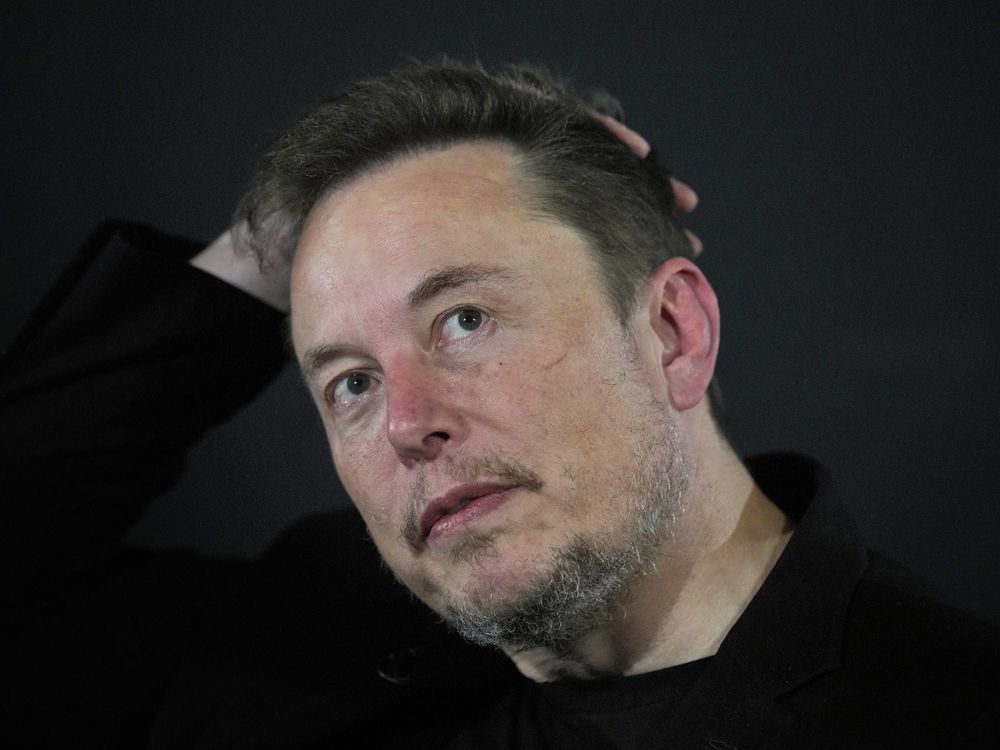The capabilities of new artificial intelligence AI models will surpass human intelligence by the end of next year, as long as the electricity and hardware supply can meet the demands of the increasingly powerful technology, according to Elon Musk.
“I think we’ll have AI that is smarter than any one human probably around the end of next year,” said the billionaire entrepreneur, who runs Tesla Inc., X Corp. and Space Exploration Technologies Corp.
In the next five years, Musk predicts that AI will probably exceed all human capabilities. He made this prediction on Monday during an interview on X with Nicolai Tangen, the chief executive of Norges Bank Investment Management.
Musk has consistently been hopeful about the development of so-called artificial general intelligence, AI tools so powerful they can beat the most capable individuals in any domain. However, Monday’s prediction is ahead of previous forecasts. Last year, he predicted “full” AGI would be achieved by 2029. Some of Musk’s boldest predictions, such as rolling out self-driving Teslas and landing a rocket on Mars, have not yet been fulfilled.
Several AI breakthroughs over the past 18 months, including the launch of video generation tools and more capable chatbots, have propelled the advancement of AI forward more quickly than expected. Demis Hassabis, the co-founder of Google’s DeepMind, predicted earlier this year that AGI could be achieved by 2030.
The progress has been hindered by a bottleneck in the supply of microchips, especially those produced by Nvidia, which are crucial for training and running AI models. Musk said these constraints were easing, but new models are now testing other data centre equipment and the electricity grid.
“Last year it was chip constrained…people could not get enough Nvidia chips. This year it’s transitioning to a voltage transformer supply. In a year or two [the constraint is] just electricity supply,” he said.
Musk’s enthusiasm to enter the AI race contradicts the prominent stance he took last year when he called for a halt in advanced AI development. He warned about the “profound risks to society and humanity” posed by super-powerful AI tools and called for an immediate pause on training any system more powerful than OpenAI’s GPT-4, the market leading model.
On Monday, Musk said his own AI start-up, xAI, was training a second version of its model Grok “which we think should be better than GPT-4”. That should be complete by May and would be followed by a new model orders of magnitude more powerful, he added.
Over the past year, Musk has devoted more time and resources to xAI. He is seeking to raise billions of dollars from investors in the US, Middle East and Hong Kong to compete with OpenAI, in a funding round which would value the company at US$18 billion, according to people familiar with the matter.
Musk has played a central, and often contentious, role in the development of new AI tools over the past decade.
- Musk increases Tesla pay to prevent OpenAI from attracting talent
- Tesla, which is struggling, is encountering a new challenge – and it's not a lack of demand
- Musk claims that his prescription for ketamine is in the best interests of investors
In 2015, he helped start OpenAI but left in 2018 after clashing with CEO and co-founder Sam Altman over the research direction.
Musk took legal action against OpenAI and Altman for breaking a contract In March, Musk alleged that OpenAI and Altman breached their contract by compromising the start-up's goal of developing AI for the benefit of humanity, a claim strongly denied by OpenAI.
© 2024 The Financial Times Ltd





